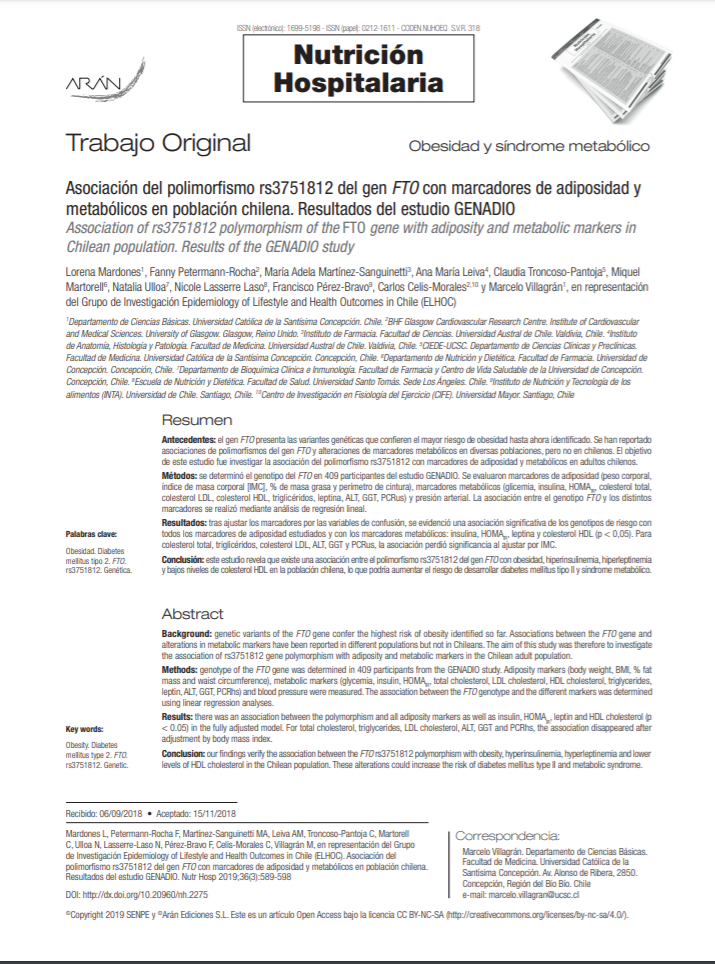Association of rs3751812 polymorphism of the FTO gene with adiposity and metabolic markers in Chilean population. Results of the GENADIO study

Fecha
2019Autor
Celis-Morales, Carlos [Univ Mayor, CIFF, Santiago, Chile]
Mardones, Lorena; Petermann-Rocha, Fanny; Adela Martínez-Sanguinetti, Maria; María Leiva, Ana; Troncoso-Pantoja, Claudia; Martorell, Miquel; Ulloa, Natalia; Lasserre Laso, Nicole; Pérez-Bravo, Francisco; Villagrán, Marcelo
Ubicación geográfica
Notas
HERRAMIENTAS
Acceda a títulos restringidos
¿Cómo descargar?Resumen
Background: genetic variants of the FTO gene confer the highest risk of obesity identified so far. Associations between the FTO gene and alterations in metabolic markers have been reported in different populations but not in Chileans. The aim of this study was therefore to investigate the association of rs3751812 gene polymorphism with adiposity and metabolic markers in the Chilean adult population. Methods: genotype of the FTO gene was determined in 409 participants from the GENADIO study. Adiposity markers (body weight, BMI, % fat mass and waist circumference), metabolic markers (glycemia, insulin, HOMA(IR), total cholesterol, LDL cholesterol, HDL cholesterol, triglycerides, leptin, ALT, GGT, PCRhs) and blood pressure were measured. The association between the FTO genotype and the different markers was determined using linear regression analyses. Results: there was an association between the polymorphism and all adiposity markers as well as insulin, HOMA(IR), leptin and HDL cholesterol (p < 0.05) in the fully adjusted model. For total cholesterol, triglycerides, LDL cholesterol, ALT, GGT and PCRhs, the association disappeared after adjustment by body mass index. Conclusion: our findings verify the association between the FTO rs3751812 polymorphism with obesity, hyperinsulinemia, hyperleptinemia and lower levels of HDL cholesterol in the Chilean population. These alterations could increase the risk of diabetes mellitus type II and metabolic syndrome.
Coleccion/es a la/s que pertenece:
Si usted es autor(a) de este documento y NO desea que su publicación tenga acceso público en este repositorio, por favor complete el formulario aquí.